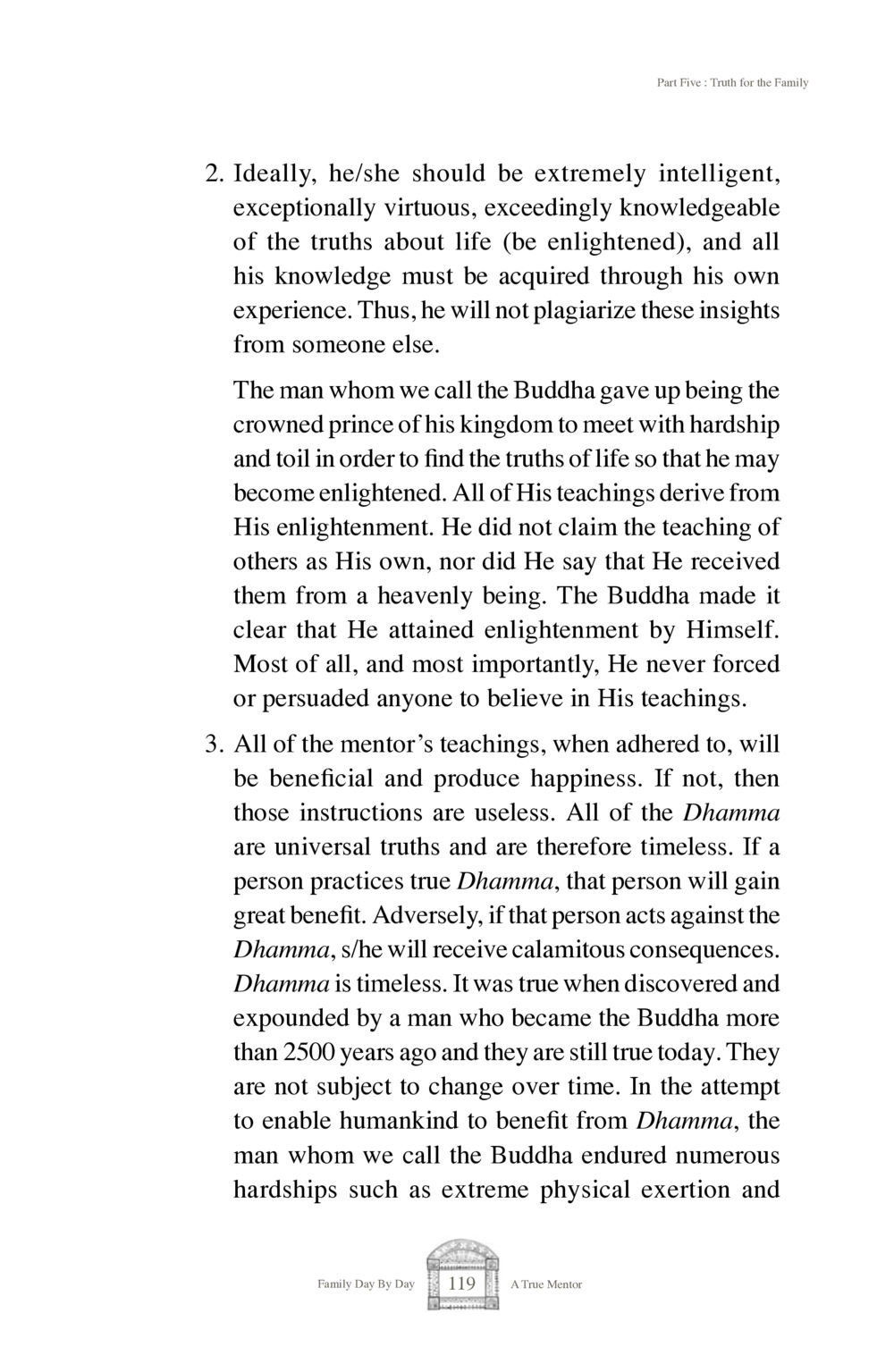Truth for the Family: Lessons from the Buddha : หน้า 121/216
Family Day By Day : หน้า 121/216 Exploring the timeless truths of life through the teachings of the Buddha for personal enlightenment and family well-being.
0 ครั้ง

สรุปเนื้อหา
In this passage, we delve into the qualities of an ideal mentor and the essence of the Buddha's teachings. The ideal mentor is someone who is not only intelligent and virtuous but also knowledgeable from personal experiences rather than borrowed insights. The Buddha sacrificed his royal status to seek truths and achieve enlightenment. His teachings, which stem solely from his experiences, are universal and timeless, offering profound benefits to those who practice them sincerely. The Dhamma remains relevant, providing guidance for happiness and understanding the consequences of one's actions. By adhering to these truths, individuals can foster a positive and harmonious family environment and benefit greatly from the wisdom of the Buddha, which remains unchanged over 2500 years.
หัวข้อประเด็น
-Ideal mentor qualities
-Timeless nature of Dhamma
-Importance of personal experience
-Buddha's journey to enlightenment
-Benefits of practicing Dhamma
ข้อความต้นฉบับในหน้า
หน้าหนังสือทั้งหมด
























































































































































































































